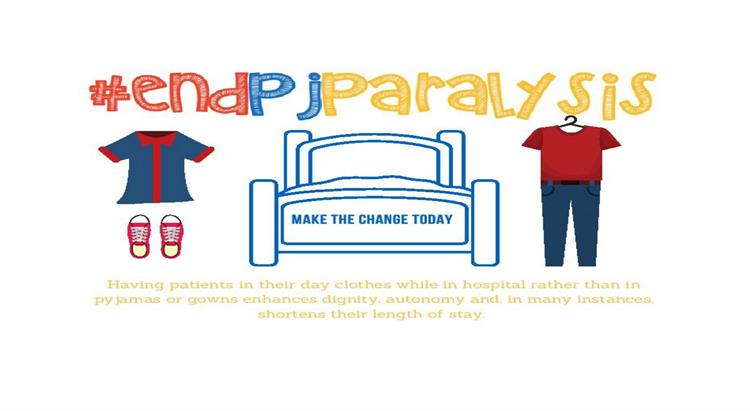16 October 2018

Hospital staff are launching an initiative this week to help patients feel more mobile and independent while they have to spend time in hospital.
Nursing staff and other colleagues at the General Hospital will be wearing pyjamas to work to help draw attention to the issue as Jersey joins the worldwide campaign to end what is known as 'PJ Paralysis' and to encourage patients, wherever possible, to wear normal clothes in hospital during the day time.
Head of Nursing and Governance for the General Hospital, Becky Sherrington, said: “End PJ Paralysis is a global social movement embraced by nurses, therapists and medical colleagues, to get patients up, dressed and moving.
“Having patients in their day clothes while in hospital, rather than in pyjamas or gowns, has many benefits. It enhances dignity, autonomy and, in many instances, shortens a patient's length of stay. We know that for patients over the age of 80, a week in bed can lead to 10 years of muscle ageing, 1.5 kg of muscle loss, and may lead to increased dependency and demotivation. Getting patients up and moving has been shown to reduce falls, improve patient experience and reduce length of stay by up to 1.5 days.”
The #EndPJParalysis initiative will be formally launched to staff at the General Hospital later this week, on Thursday, when staff will be invited to a launch event to find out more.
Becky added: “EndPJParalysis puts the focus on quality of patient time and experience. The start of our #EndPJParalysis journey at the General Hospital began with a call to action for our staff to consider ways they could support patients to maintain some normality in their routine and get up, dressed and active. Our work has involved a close collaboration between nursing and allied health professionals (AHPs) who have that rehabilitative focus at the core of their work.
“The team involved so far in the run up to the launch have shown massive enthusiasm, dedication and a willingness to help make this work in Jersey. With the support and commitment of the wider hospital teams, we can make a positive difference to our patients.”
Families who have loved ones in hospital can help by checking that relatives have appropriate clothing to wear while they are in hospital. Clothes should, as far as possible, be 'normal' day clothes which are comfortable and loose fitting. Well-fitting shoes are also essential.